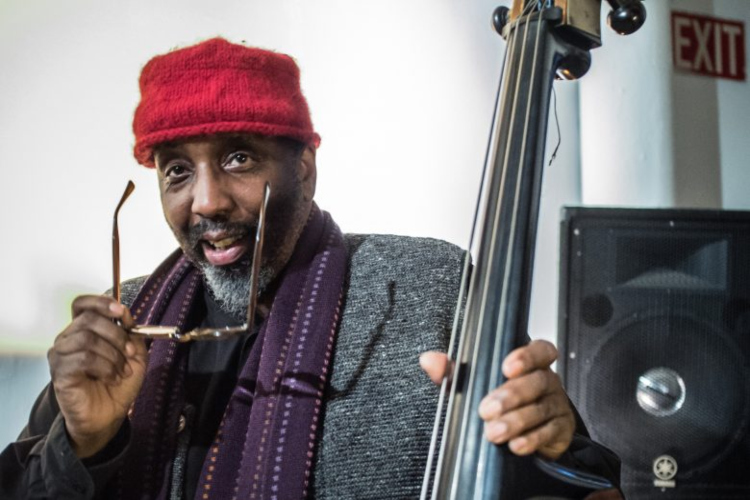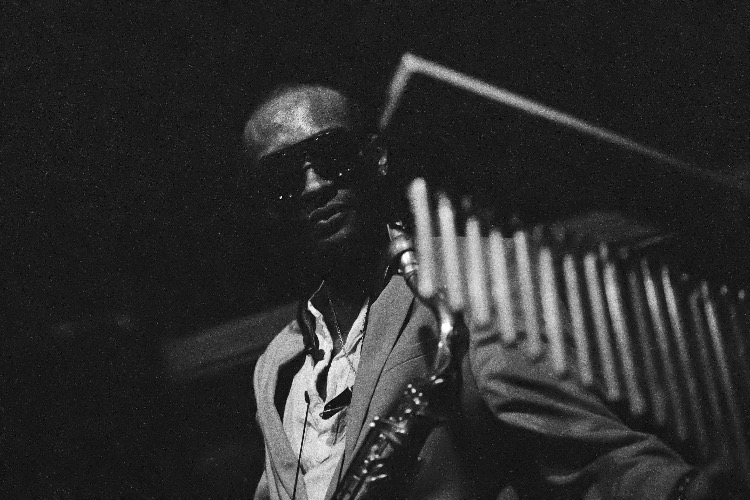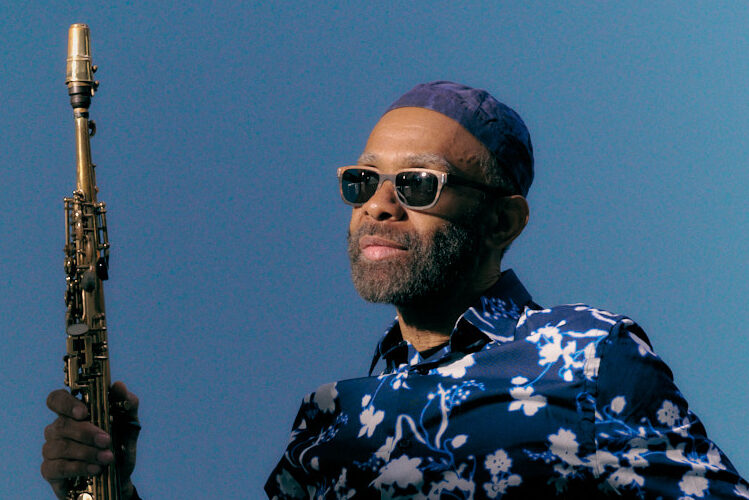All Singing Together: A Conversation with William Parker (Part Two)
|
Getting your Trinity Audio player ready...
|
We continue our conversation with William Parker by further discussing his philosophy on music, Universal Tonality (Centering/AUM Fidelity, 2022) and lessons learned from Cecil Taylor. You can read part one here.
PostGenre: You have also indicated that music is played for the earth and not for people. Does that relate to your earlier statement that humans did not invent music and merely discovered it?
William Parker: Every sound you make goes into the air and ultimately back into the ground. Everything vibrates regardless of whether a person is listening. Even without making a drum vibrate, the membrane in the drummer’s heart is vibrating. Their nervous system is vibrating. Your first audience as a musician is yourself as the music goes through you.
PG: This connects back to the importance of expressing your own voice in the music. If the musician is the first audience, he or she will respond better to music that is authentic to them. But there is also a critical distinction between staying true to your voice and having an ego. As you have mentioned elsewhere, the concept of universal tonality requires that artists remove their ego from the music.
WP: The idea is that sometimes other musicians will be indifferent to me if their ego is too inflated. If you play softer, you can be completely overpowered by a louder instrument. When I was studying with Richard Davis, he noted that different projects may call for you to play with a folk thing, a symphony orchestra, a jazz singer, or a rock band. You must be a professional to sound good in every situation. Putting your ego aside allows you to fit into the music, regardless of the circumstances.
But you still have to be yourself. If you have a mission in life to be yourself, once you are on the path of doing so, you can’t be decoupled from that path. It’s what you have to do every time you play. That’s your mission. That’s your goal. You’ve got to play your song. In a way, you’re no longer a professional musician. You become a shaman – a person with a message – and you convey that message every time you play. But everyone’s different. Everyone’s got a different way of doing things in a different color, and you first have to find yours. Then people have to respect it. Hopefully, you’re around like-minded people who can go with you, and you can make great music come through you.
PG: The discussion of music as being some larger force brings up interesting questions about humanity’s relationship as discoverers of the music. A few of the artists on Universal Tonality – Jerome Cooper, Billy Bang, and Grachan Moncur III – are no longer with us physically, yet their music remains.
WP: Well, their bodies have died. But I think their spirits are part of a much larger and broader spirit, and they return to that spirit. Maybe they come back out again and get new bodies. Or maybe they don’t. We don’t know. But we do know that their body as we knew it is gone. You don’t see them walking around unless you see ghosts. But even a ghost is just a mere reflection of the body and the soul.
Of course, they leave behind their notes, writings, and recordings. And those things can inspire other people to activate their own imagination and allow them to begin to live in a certain way. Hopefully, in that process, those who read or experience their works can find out what it is they’re supposed to be doing.
PG: And they leave behind the lessons they teach others. What did you learn the most from working with Cecil Taylor?
WP: I learned that anything is possible. Also that the two most important things about music are that there are no limits, and you have to be yourself for music to work through you on the highest level.
You have to be yourself. People often lump things together. They group all music into categories and divide between music that is “free” and that which is less so. But the reality is that everyone’s different. Someone could say Randy Weston played free music. But is it important that he played free music? No, he was playing Randy Weston. And the same thing happens with people’s various influences. They talk about whose influence Randy, Andrew Hill, Don Pullen came from. But they all sound different. Cooper Moore and Matthew Shipp sound different as well. They all have different sensibilities. You just can’t lump them together. You have to listen.
PG: As you have said, it is that individuality that brings out music’s beauty to the listener.
WP: And it can change the listener. People can see God reflecting in the most beautiful things in the universe. If you’re a gardener, you can create the most beautiful garden in the world. When people see the garden, they can say they were inspired by it. Or maybe they got inspired by hearing a flute or reading a poem. Maybe experiencing beauty in those ways will keep them from starting a war, putting people in cages, or voting for people who would do those sorts of things. It may lead them to make sure that everybody has something to eat and that there’s no more homelessness. It may make them do everything in their power to make sure that we’re on the right track as human beings and that nobody is suffering. And that’s exactly what music is for. It’s about setting an environment for people to stay on what James Brown would call “the good foot.”
PG: Which perhaps explains why you indicate in the notes to Universal Tonality that “universal tonality is love.”
WP: Yeah, universal tonality is love. Wherever you go, all over the world, people play music. All people love music. They can feel the music. And no musician operates to make music people hate. It doesn’t vibrate right at all if they do that. No one says “Wow, they hated the music, I’m so happy” or “Wow, they hate me. I’m in heaven.” We want to spread joy, and doing so speaks to something about music larger than us as artists.
PG: So, then what exactly is silence?
WP: Silence is an element of music. That’s all it is. Silence is a shadow of sound. Silence is breath. The more you listen to silence, the more you find that that silence is simply a sound.
PG: This also brings up a question that has been asked many times over the years: What is music? In addition to writing and performing music as most people understand it, you also create poetry. From your writings and conversations, it seems you view “music” as broader than just melodies and harmonies to encompass anything beautiful in the world.
WP: Anything that is beautiful is a reflection of music. It is the music in poetry that makes it work. It is the music in dance that makes dance work. It’s like anything beautiful is music. Flowers are musical. A smile on your beloved’s face is musical. When you are hungry and haven’t eaten all day, go to your grandma’s house, and she puts food on the table for you, it’s musical. When she then pulls out one of those apple pies you love so much and it puts a smile on your face, that’s musical too. Then you end the day by going to hear some Sonny Rollins. You can’t beat that. It’s all musical, and it’s all connected.
PG: Speaking of Sonny Rollins, he’s been clear that he believes that when musicians make music, they are essentially conduits to a higher force. That perspective seems to align with your view of music.
WP: That is the view. It’s like one of the first things I learned when I was studying Plato in school. In his Ion dialogue, Plato refers to poetic inspiration as a type of magnetic force. You have these rings, and when you touch one ring, it touches another ring, which then touches another ring, until they all become empowered. The musician trains to not interfere with the flow of that magnetic force. They work to let it all in. As [Albert] Ayler said, “Music is the healing force of the universe. Oh, let it come in. Oh, let it come in. Music is a healing force of the universe… sometimes not understood [but felt], let it come in.” The idea is to let music flow through you, not block it off. Accept peace and the mysteries of the world.
Universal Tonality is now available for purchase on Bandcamp. More information on Parker can be found on his website. Cisco Bradley’s biography of Parker, Universal Tonality: The Life and Music of William Parker can be purchased from Duke University Press.
Photo credit: Peter Gannushkin




One thought on “All Singing Together: A Conversation with William Parker (Part Two)”